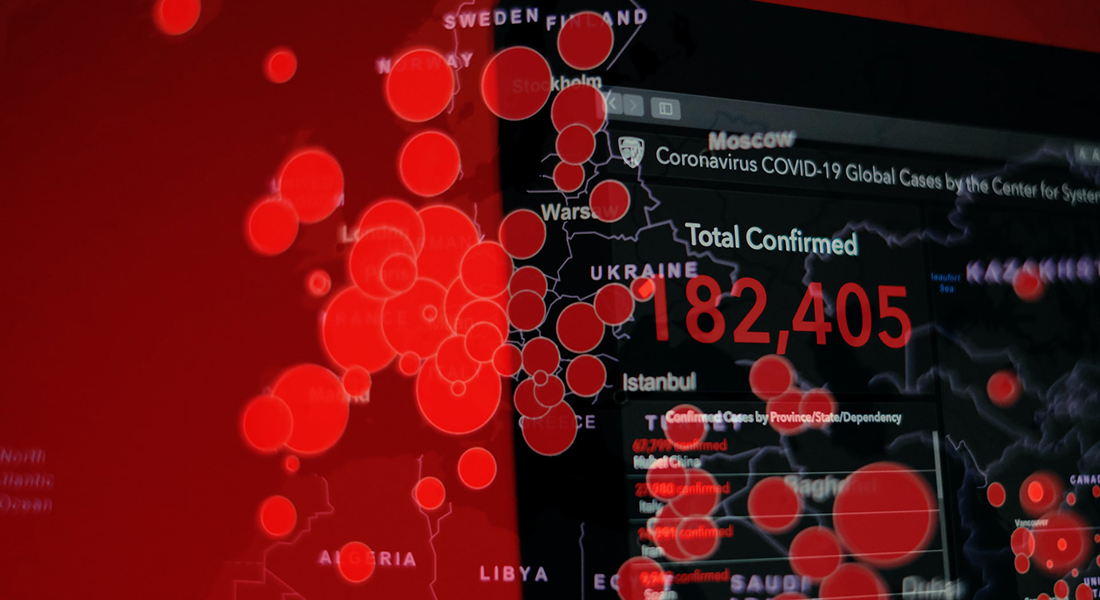Mikkel Vedby Rasmussen: Constant crisis policy threatens our imagination
Our political imagination becomes impoverished if we can only think in terms of crises and crisis solutions, says Mikkel Vedby Rasmussen. He wants to keep alive the politician who dreams of improving society – even when things don't go to hell.

Financial crisis, climate crisis, corona crisis, Ukraine crisis. Crises are not just a central concept in the Western way of understanding politics. Crisis has become a dominant stepping stone for political change. This is according to Mikkel Vedby Rasmussen, professor of political science and author of the book ‘Krisesamfundet’ (‘The Crisis Society’).
"I think it has actually become difficult for us to take a step back from that way of thinking about politics. It's not right if there isn't a crisis. So when you want to abolish a public holiday, you first have to point to the crisis that justifies it," he says.
There have always been crises, but especially since the mid-70s, the concept of crisis has gone from explaining something to becoming a political tool.
"First you identify a crisis. Then you talk it up – and then you deliver the solution. If you apply this structure to a lot of politics, you will see that this is exactly how it works today," says Mikkel Vedby Rasmussen.
Generations of politicians and civil servants are trained to think in crisis logic – because it works. However, Mikkel Vedby Rasmussen wonders whether it will continue to work.
"The corona crisis was in many ways a culmination point. We had about as much crisis as you can get. Now I sense a demand for politicians to offer something more than crisis management," he says.
Pursuing an active crisis policy, where you go straight from one crisis to the next, can make people immune to crisis talk and typically trigger two reactions:
"Some will say that 'crisis' doesn't even begin to describe how bad it is. It's much worse, almost dystopian. Others will respond with: 'Nonsense, it's just something you're making up. If we all just relax, everything will be fine,'" he says.
Tired of burning platforms
Crises typically require immediate action. However, Mikkel Vedby Rasmussen can spot many societal problems that do not have the anatomy of a crisis. And if we treat them as crises, we won't solve those problems.
We've got used to the idea that the crisis is the burden of proof before we change anything. And that's basically completely crazy. Why shouldn't you be able to change something just because it could be even better?
"Take the Danish public-school sector, where we have been saying for years that there was a crisis. The kids weren't learning enough. They couldn't spell. We wanted to fix this quickly and efficiently. Ten years after the public-school reform, have the schools become decisively better? I don't think so. Will the problems be solved by doing something completely different tomorrow? No, because the challenges run deep and require a very long process," says Mikkel Vedby Rasmussen.
As Dean of the Faculty of Social Sciences, Mikkel Vedby Rasmussen has experimented with saying: 'No, I don't want to talk about burning platforms. I want to talk about where we want to go'.
"What strikes me is that people don't think it applies. We've got used to the idea that the crisis is the burden of proof before we change anything. And that's basically completely crazy. Why shouldn't you be able to change something just because it could be even better?" he asks.
Mikkel Vedby Rasmussen sees the belief in gradually making things better being replaced by a belief in letting things go to hell so you can fix them.
"But in the belief that you should let things go to hell, there is also a completely naive notion that once things have gone to hell, you can quickly fix them again. And you can't – the crisis is not a magic tool."
Crises provide room for manoeuvre
One of the biggest crises in recent times was the corona crisis. It raised the key question of when a state of emergency justifies a temporary suspension of democracy.
"Every political system must have some defence mechanisms where, in a crisis situation, freedoms can be weighed against the survival of the nation. But if you're in crisis all the time, does that mean you have to constantly give up certain freedoms? Then you no longer have them," Mikkel Vedby Rasmussen points out.
The use of crises as a lever for political change saw several glaring examples in the 20th century.
"Of course, you are not like Hitler or Stalin just because you declare society in crisis and proclaim yourself the only one who can solve the crisis. But I think there is a fundamental downside to many years of insisting on crisis politics," emphasises Mikkel Vedby Rasmussen and elaborates:
"Donald Trump is a great example of what is happening. He constantly talks about crises, but he never actually has a recipe for a solution. It's only the crisis that's interesting because the crisis creates a political space for people like him to operate in."
There are many major crises at the moment: the climate crisis, the biodiversity crisis, the antibiotic resistance crisis – the democracy crisis. They all concern Mikkel Vedby Rasmussen, but the last one in particular bothers him.
"The tensions between democracy and crisis politics actually worry me a lot. I think we are much closer to the edge than we realise. There is a danger of all politics being turned into a kind of necessity. This can inhibit democracy, rob us of political imagination – and ultimately make us worse at solving society's problems," he concludes.
Contact
Mikkel Vedby Rasmussen
Dean and Professor in Political Science
Faculty of Social Sciences
Mail: dekan@samf.ku.dk
Phone: +45 21 18 10 48
Simon Knokgaard Halskov
Press and communication advisor
Faculty of Social Sciences
Mail: sih@samf.ku.dk
Phone: +45 93 56 53 29
